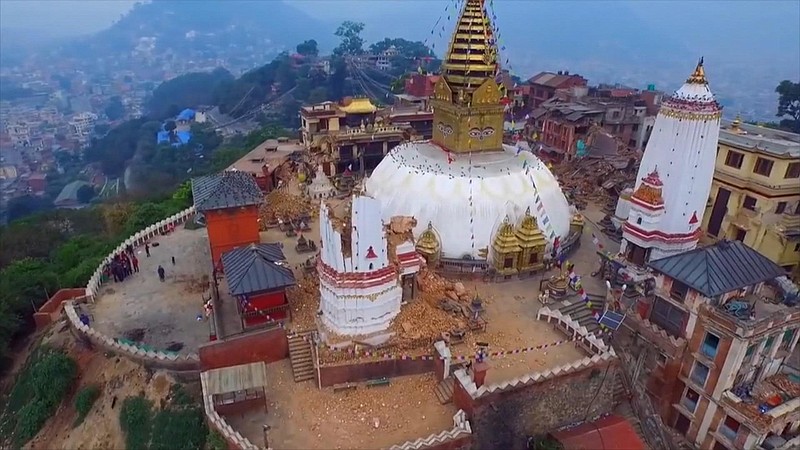Bess Wallis was up early Monday morning. Tiptoeing outside of her vacation rental near Panama City Beach, Fla., Wallis, with her cup of coffee and Bible and journal, walked down to the white beach to watch the waves roll in.
Inside, her friends stayed sleeping. But Wallis couldn't.
"I keep thinking about Nepal," she said.
On Saturday, a 7.8-magnitude earthquake hit, followed by a 6.6 aftershock. Avalanches tumbled down Mt. Everest. More than 100,000 Nepali are now homeless, and more than 4,000 have been reported dead.
Read more
* Local mom hopes for safe return of daughter from quake-devastated Nepal * Nepal troops ready aid for remote quake-hit villages; death toll rises past 4,400
"That number is projected to rise as high as 10,000," the LA Times reported.
Many died in haphazard buildings made too-tall in order accommodate the rural-to-urban influx of Nepali moving to Kathmandu. It is a land thin with infrastructure and resources, barely able to respond on the day when, somewhere deep in the earth, seismic forces shuddered.
"Kathmandu is first on the list of cities deemed most vulnerable to seismic risk in the world," writes Kundu Dixit, with the New York Times. "Any government in the world would have been overwhelmed by the scale of this disaster, but the logistical difficulties in Nepal, a poor, near-roadless, mountainous land, are extraordinary. The Nepali Army itself has only one big helicopter."
In 2012, Wallis and her father Don traveled to Nepal for a month-long journey. As with all meaningful travel, they returned home different than when they left, affected in body, mind and spirit. It was a long, unending encounter with contradiction: such poverty within Nepal, yet even more joy.
"They have such a zest for life," said Wallis, an education major at University of Tennessee at Chattanooga. "They lived in the poorest of poor conditions, yet remained so kind to everybody."
Wallis spent time in Kathmandu's Durbar Square, a UNESCO World Heritage site, full of temples and color and chaos surrounded by silk, plazas, fountains and flowers. It's like the market square of the heart.
And now?
"It's badly ruined," Wallis said.
After Nepal, they trekked into Tibet, across the holy mountain of Mt. Kailash. There, Buddhists and Hindus welcomed Wallis, a Christian, into their temples to participate in worship, meditation and discussion. Not in an attempt to coerce, but to simply share, as if there are many rooms in the heart, and plenty of elbow room to go around.
"It taught me a lot about the people there," she said. "They didn't tell you who or what to believe. They just welcomed us, and let us participate in things with them."
Returning home to America, where religion is often a fistfight, Wallis still remembers her Nepali friends.
"Open and loving no matter what," she said. "They don't have very much. This temple is what they cherish, yet they let me in."
In the days, and likely weeks, ahead Nepal will remain in our headlines. Reporters will continue to talk about poverty there. And yet we must not forget the wealth of spirit. Were we able to rank nations in terms of spiritual wealth, Nepal would be a global superpower.
Buddhism and Hinduism teach forms of spirituality that don't cling or grasp at life. Things last, until they don't. The land is firm, until the day when it isn't.
Of course, there are ways we can help -- Doctors Without Borders, UNICEF, Catholic Relief Services and other global agencies are all in need of donations. Visit their individual websites, please.
Wallis also suggests we pray.
"It is important we unite as a community of God to help them physically, but also spirituality," she said. "That would be powerful to them, and is important to them."
On the beach before her, the waves continued to roll in. Some days, they are gentle. Other days, the waves can devastate.
Like Wallis, we should stay awake, pay attention and keep thinking of others.
Contact David Cook at dcook@timesfreepress.com or 423-757-6329. Follow him on Facebook at DavidCookTFP.

